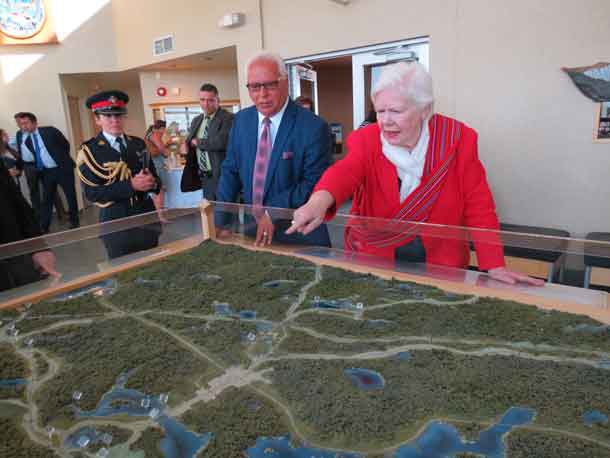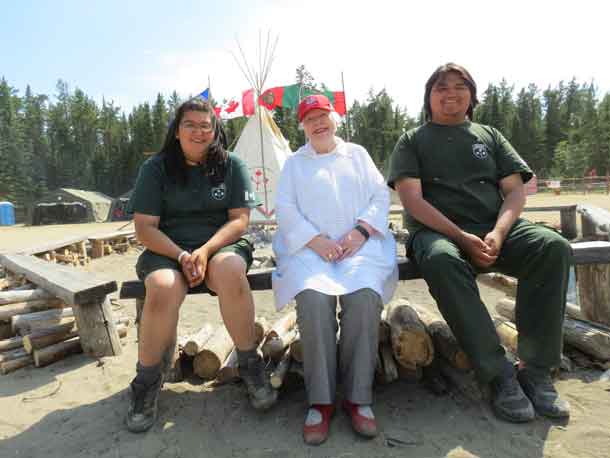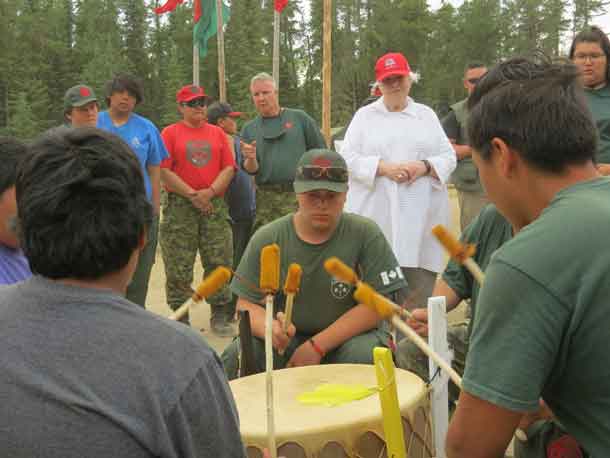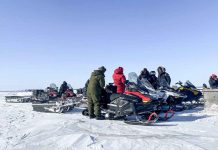

By Peter Moon
GREENSTONE – Ontario’s Lieutenant Governor, Elizabeth Dowdeswell, is on a three-day trip to learn what living in Northern Ontario is like.
She spent part of yesterday meeting with officials and residents of Greenstone and ended the day by talking with soldiers, Canadian Rangers, and Junior Canadian Rangers at Camp Loon, an advanced training camp for Junior Rangers in the bush north of Geraldton.
She spent much of Monday visiting Webequie, a remote First Nation located 540 kilometers north of Thunder Bay, where she met with young aspiring Indigenous journalists. “I was a guinea pig for them,” she said. “They actually interviewed me for a radio program they are doing.”
Her next two stops are in Atikokan and Quetico Provincial Park, where she is looking forward to her first visit to the park.

“One of the things a Lieutenant Governor does is get to know about the people of the province,” she said. “The best way to do that is to be where they live, work, and play. So I try to get to as many places as I possibly can. In the summer I try get to Northern Ontario.”
What she is finding, she said, is that while the people of Northern Ontario face many challenges they have “tremendous community spirit and one of the things you learn very quickly is, in the communities like the ones I am visiting, people look out for each other. They take care of each other and they want to make sure their kids are safe.”

People told her that people living in small Northern communities face many challenges. They told her “life is expensive because it depends a lot on the availability of transportation and energy costs are high. Sometimes you can’t get things done as quickly as you might like.”
Getting access to education and medical services can be difficult, she was told.
One of the things she got a lot of pleasure from was meeting with a small group of Indigenous female drummers in Geraldton. “I had tea with them,” she said. “Sometimes in informal conversation over tea you get to really hear what is on people’s minds.”
She said she was impressed by many of the Junior Rangers she talked with at Camp Loon. “The senior Junior Rangers were wonderful to see as they develop leadership capabilities at the camp.”
The lieutenant governor is an honorary Canadian Ranger.
(Sergeant Peter Moon is the public affairs ranger for the 3rd Canadian Ranger Patrol Group at Canadian Forces Base Borden.)







